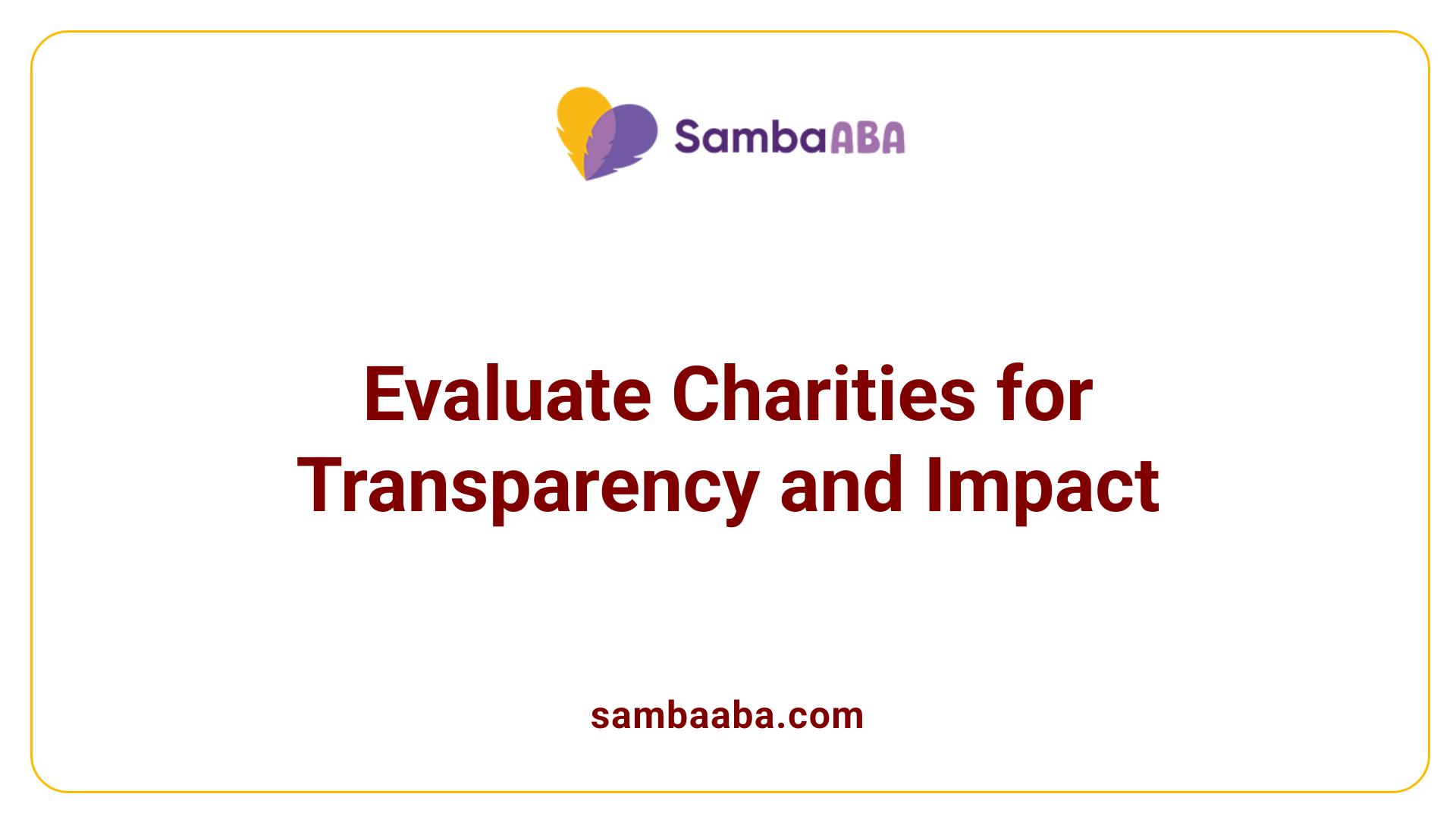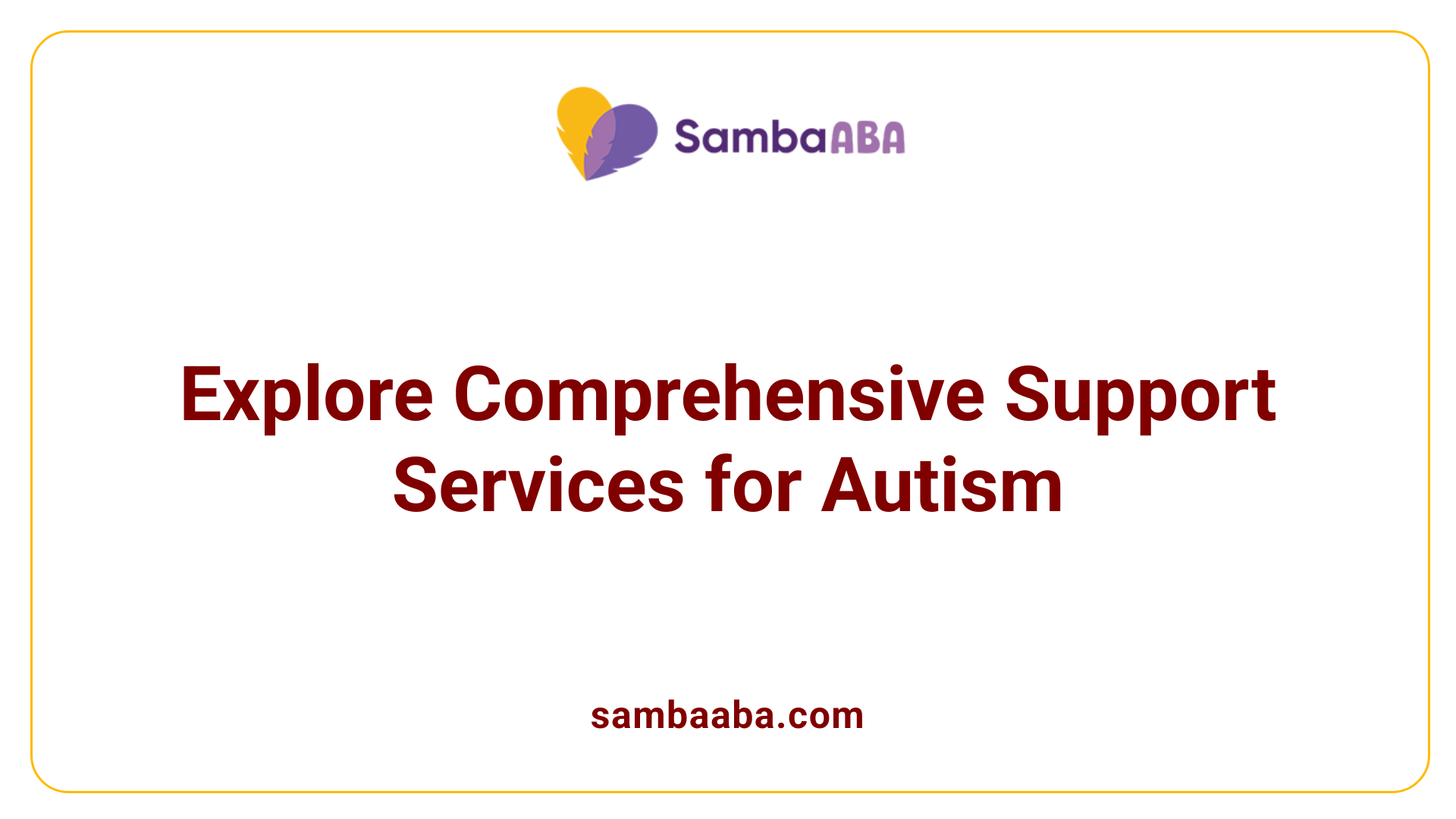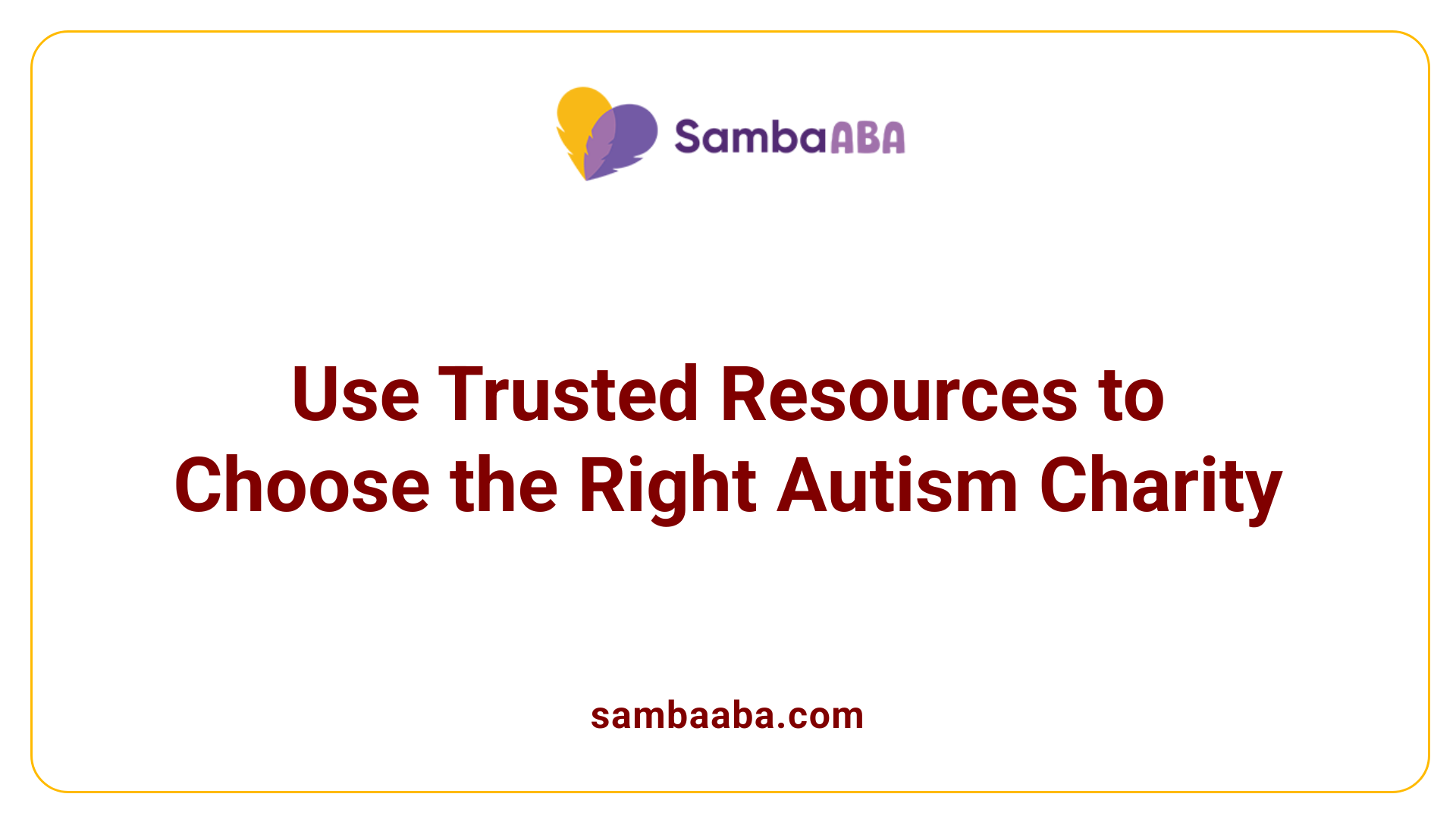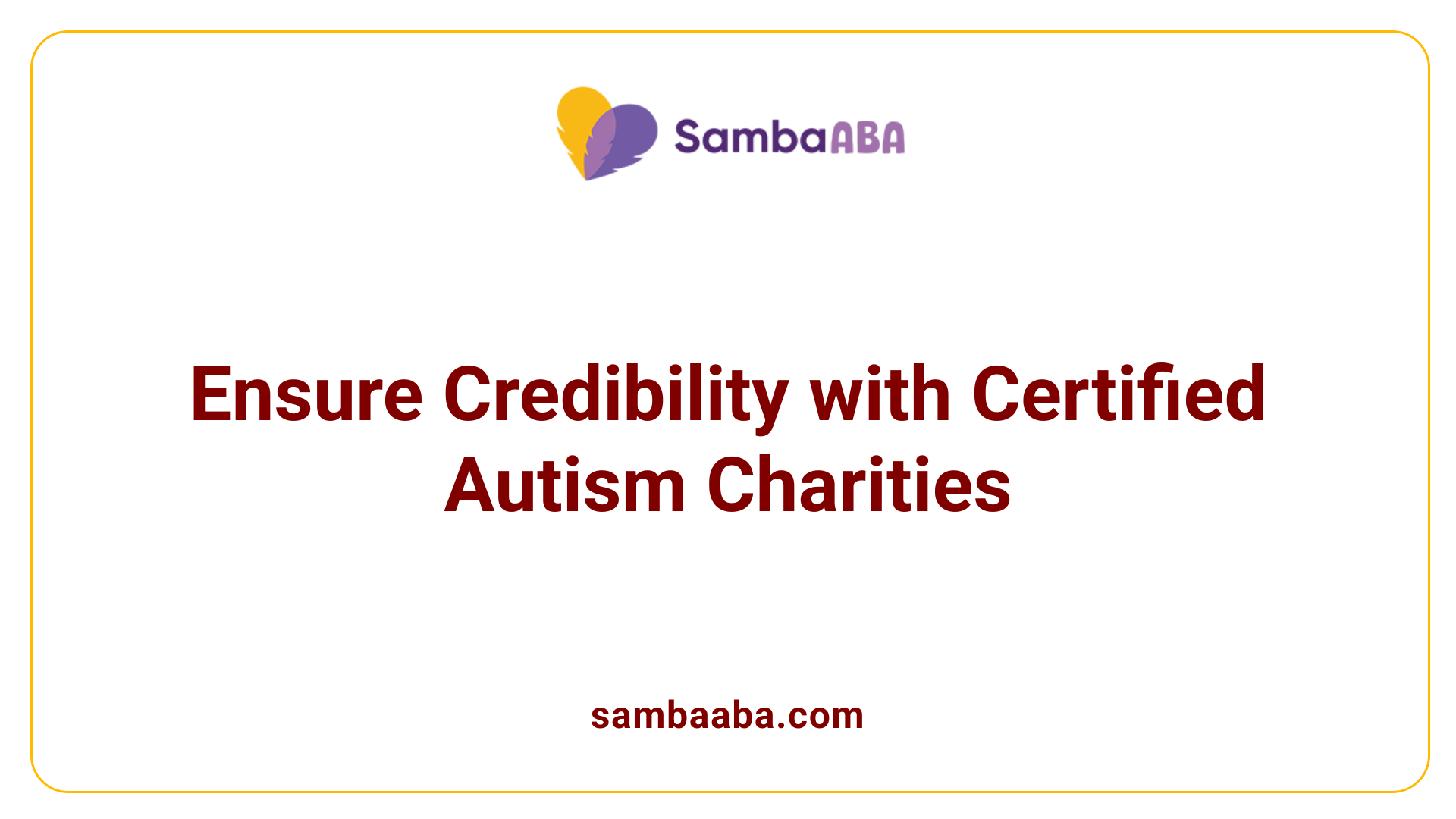How to Choose an Autism Charity
Navigating the Path to Meaningful Support
Understanding the Importance of Choosing the Right Autism Charity
Selecting a reputable autism charity is crucial for ensuring your support makes a genuine difference. With countless organizations available, understanding how to evaluate their credibility, effectiveness, and alignment with your values can help you contribute meaningfully to the autism community.
Assessing the Credibility and Impact of Autism Charities
 When choosing an autism charity, it's important to prioritize organizations with a strong reputation for transparency and impactful work. Reputable charities often have high ratings from watchdog organizations such as Charity Navigator or BBB Wise Giving Alliance. These ratings evaluate financial accountability, transparency, and effectiveness in using donations for their cause.
When choosing an autism charity, it's important to prioritize organizations with a strong reputation for transparency and impactful work. Reputable charities often have high ratings from watchdog organizations such as Charity Navigator or BBB Wise Giving Alliance. These ratings evaluate financial accountability, transparency, and effectiveness in using donations for their cause.
Charity ratings can guide you in identifying organizations that allocate most of their funds directly to programs supporting autistic individuals and their families, rather than administrative costs or fundraising efforts. Reputable organizations also openly publish annual reports and financial statements, allowing donors to review their operations.
Alignment with evidence-based practices is crucial. The charity should support autism acceptance and inclusion, reject pseudoscience or harmful treatments, and promote approaches backed by research. For example, organizations that advocate for early diagnosis, tailored interventions, and community inclusion are generally aligned with current scientific understanding.
To choose a trustworthy autism charity, consider the following criteria:
- Leadership includes autistic individuals or is led by autistic advocates.
- The mission emphasizes support, acceptance, and empowerment.
- Transparent financial practices and honest reporting.
- Evidence-based programs and services.
- Positive reviews and recommendations from other families.
- Clear communication about how donations are used.
Engaging directly with the organization can also provide insight into their priorities and how well they meet your needs. By applying these evaluation criteria, you can support charities that genuinely improve lives and promote positive change within the autism community.
Understanding the Range of Services and Support Provided

What services and support options do autism charities typically offer?
Autism charities play a vital role in providing a variety of services designed to support individuals on the autism spectrum and their families. These organizations offer diagnostic assessments to confirm autism diagnoses, often following standardized guidelines such as NICE or SIGN. Early screening and educational evaluations help identify needs at a young age, enabling timely intervention.
Beyond assessments, many charities deliver therapeutic programs like applied behavior analysis (ABA), speech therapy, and caregiver skills training. They also offer resources including support groups, educational materials, and training sessions. Community programs frequently include awareness campaigns, safety initiatives like drowning prevention campaigns, and safety tools for families.
Charities also focus on advocacy, influencing public policy, and funding research to better understand autism. They organize community events, provide helplines, and connect families with local support networks, ensuring comprehensive and accessible support tailored to diverse needs.
What should I know about autism-related programs, advocacy, and support initiatives?
Autism programs and advocacy efforts aim to promote a society that understands and accepts autistic individuals. Organizations such as the Autism Society, Autism Speaks, and others work to raise awareness through campaigns, educational initiatives, and community engagement.
Their goals include improving access to healthcare, education, employment opportunities, and other essential services. They actively support families by providing resources on navigating educational systems and making informed decisions, such as preparing for Individualized Education Program (IEP) meetings.
Advocacy efforts also involve lobbying for policy changes at government levels, promoting laws that protect rights and enhance services. Public campaigns like Autism Acceptance Month foster greater acceptance and understanding.
Support initiatives extend to training first responders, teachers, and community members on safety and inclusivity, which collectively contribute to more supportive environments for autistic individuals.
| Service Area | Support Offered | Additional Details |
|---|---|---|
| Diagnostic services | Autism assessments, early screening | Follow NICE or SIGN guidelines |
| Therapy programs | ABA, speech therapy, behavioral support | Delivered by specialized professionals |
| Educational support | Resources, training, IEP planning | Helps tailor learning to individual needs |
| Community campaigns | Awareness, drowning prevention, safety programs | Engage public and local authorities |
| Advocacy & Policy | Campaigns, lobbying, research funding | Aim for systemic change |
| Family resources | Support groups, helplines, educational materials | Connect families with local and online support |
Understanding these diverse services and initiatives highlights the comprehensive support system that helps individuals with autism thrive and promotes a more inclusive society.
Resources for Evaluating Autism Charities and Making Informed Choices
 When considering supporting autism charities, it’s important to evaluate their credibility, transparency, and impact. Reputable resources such as charity watchdog websites—including Charity Navigator, GuideStar, and BBB Wise Giving Alliance—offer detailed ratings based on financial health, transparency, and accountability. These platforms assess how effectively charities use their funds, providing a clear picture for donors.
When considering supporting autism charities, it’s important to evaluate their credibility, transparency, and impact. Reputable resources such as charity watchdog websites—including Charity Navigator, GuideStar, and BBB Wise Giving Alliance—offer detailed ratings based on financial health, transparency, and accountability. These platforms assess how effectively charities use their funds, providing a clear picture for donors.
Reviewing annual reports, program descriptions, and awards can further illuminate a charity’s reputation and effectiveness. For instance, Autism Speaks has received various recognitions, which can help gauge its standing within the community. Moreover, government agencies like the CDC, NIH, and the Department of Education supply data on autism research, funded programs, and federal initiatives, assisting donors in aligning their support with credible, impactful organizations.
Community and beneficiary feedback also plays a vital role. Testimonials, reviews, and direct conversations with past or current beneficiaries help reveal on-the-ground effectiveness and how well the organization meets the needs of autistic individuals and families. Ultimately, using these evaluation tools can help ensure that donations are allocated to charities that are transparent, efficient, and truly serve the autism community.
How can I make an informed donation decision to ensure my support is impactful?
When deciding where to donate, begin by researching the organization’s mission and values. A focus on inclusive practices, including its involvement of autistic individuals in leadership and program design, ensures alignment with principles of acceptance and neurodiversity. It’s also wise to review financial transparency ratings—aiming for charities that allocate at least 75% of their funds directly to programs rather than administrative costs.
Assess the tangible impact by examining their reports and community engagement efforts. Support organizations with a clear track record of meaningful work—be it community support, advocacy, research, or inclusive educational initiatives. Avoid charities that promote harmful stereotypes or rely heavily on language that disrespects neurodiversity.
Finally, verify that the charity openly communicates progress and demonstrates ongoing community involvement through impact reports and updates. Choosing organizations that prioritize autistic voices and uphold ethical standards ensures your donation supports truly impactful and respectful autism initiatives.
The Role of Reputable Organizations and Certification Standards
 Autism charities play a vital role in supporting individuals with autism, their families, and communities. They provide vital services such as assessments, early intervention programs, safety tools, educational resources, and advocacy efforts to promote inclusion and awareness.
Autism charities play a vital role in supporting individuals with autism, their families, and communities. They provide vital services such as assessments, early intervention programs, safety tools, educational resources, and advocacy efforts to promote inclusion and awareness.
To ensure that support and donations go to trustworthy organizations, it is important to evaluate their credibility using established certification standards and ratings. Reputable charities often display transparency seals like the Platinum Transparency Seal from GuideStar, which indicates high levels of openness about their financials and activities.
Charity organizations such as Charity Navigator and GreatNonProfits provide independent ratings based on transparency, accountability, and financial health. For example, Charity Navigator’s evaluations consider factors like how efficiently a charity uses its funds and how well it adheres to best practices.
Organizations like the Autism Research Institute are recognized for their independence and rigorous standards. They fund scientific research and provide resources without dependence on government grants or profit-driven motives.
Leveraging the expertise of trusted bodies ensures that donations and support are directed toward effective and credible initiatives. These organizations not only serve as benchmarks for trustworthiness but also help the public make informed decisions when choosing whom to support.
| Certification/Rating Body | What It Assesses | Significance | Example Organization |
|---|---|---|---|
| GuideStar (Seal of Transparency) | Financials, transparency practices | Ensures openness in operations | Autism Society (in some regions) |
| Charity Navigator | Financial health, accountability, transparency | Guides donors to reputable charities | Autism Research Institute |
| BBB Wise Giving Alliance | Governance, effectiveness, financial accountability | Certified trustworthy charities | Cause for Autism |
Overall, selecting charities with strong ratings and certifications helps ensure your contributions empower effective, ethical, and impactful autism support efforts.
Making a Thoughtful Choice for a Brighter Future
Ultimately, selecting the right autism charity involves careful research, understanding of the services offered, and alignment with your values. By utilizing reputable resources like charity watchdogs, reviewing their transparency, and engaging with organizations directly, you can support initiatives that genuinely make a difference. Your contribution, whether through donations, volunteering, or advocacy, can help foster a more inclusive, understanding society where autistic individuals thrive.
References
- How to request an autism assessment - National Autistic Society
- National Autistic Society
- Autism Society Creating connections for the Autism community to ...
- Autism Research Institute
- Autism Awareness - Charity Navigator
- Donate to a Charity | Autism Spectrum Australia (Aspect)
- National Autism Association: NAA Home Page
- Charity-funded Autism Assessment - Caudwell Children
- Autism Speaks: Autism support, resources & advocacy
- Determining a Good Autism Organization - Stimpunks Foundation
